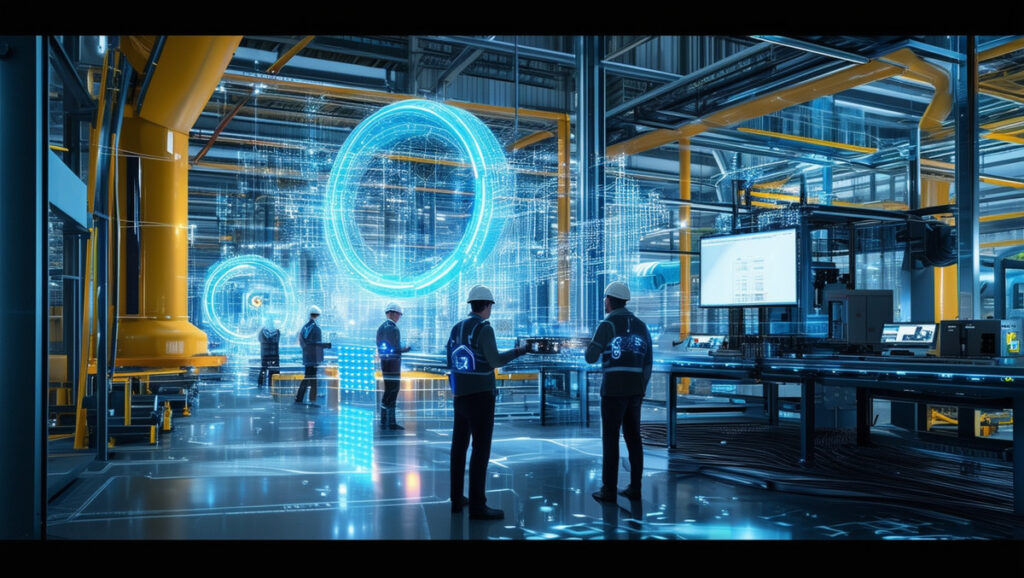The Industrial Metaverse poised to transform industries worldwide

The concept of the metaverse has evolved beyond gaming and entertainment to the industrial sector, leading to the emergence of the “Industrial Metaverse.” This integration of physical and virtual worlds aims to drive innovation, streamline operations, and enhance collaboration across industries grappling with Industry 4.0 complexities.
At its core, the Industrial Metaverse is a tailored version of the broader metaverse concept geared towards industrial use. It creates a virtual environment where real-world industrial processes are replicated, simulated, and optimized using cutting-edge technologies like AI, digital twins, IoT, AR, and VR. This immersive digital space enables industries to visualize and interact with digital renditions of physical assets, systems, and processes to facilitate real-time decision-making and global collaboration.
A key feature of the Industrial Metaverse is digital twins, which are virtual replicas of physical assets or systems updated in real-time to reflect changes in the physical world. These digital twins allow industries to test scenarios, predict outcomes, and optimize operations without disrupting production. For instance, a manufacturing plant can simulate its production line in the digital space to identify bottlenecks, test configurations, and refine processes before making changes in the physical setup, reducing downtime, costs, and risks.
The collaborative potential of the Industrial Metaverse is significant. Engineers, designers, and operators from different locations can collaborate in real-time in the virtual environment, working on the same digital twin or simulation. This level of collaboration eliminates the need for physical presence, cutting travel costs, and speeding up project timelines.
Furthermore, the Industrial Metaverse is revolutionizing training and skill development. AR and VR technologies offer immersive training sessions where employees can practice complex tasks in a secure virtual setting. This approach is particularly valuable in high-risk industries like oil and gas, where hands-on training can be costly and hazardous. Through metaverse-based training, employees can build confidence and expertise before working with real equipment.
In terms of sustainability and efficiency, the Industrial Metaverse plays a crucial role. By simulating and optimizing processes in a virtual environment, industries can reduce energy consumption, minimize waste, and decrease their carbon footprint. For example, a logistics company can model supply chain routes in the metaverse to cut fuel consumption and emissions. Similarly, manufacturers can test production methods to identify energy-efficient and eco-friendly techniques.
Despite its potential, the Industrial Metaverse faces challenges like data security, platform compatibility, and the need for robust infrastructure. Bridging the digital divide is essential to ensure all stakeholders have access to the necessary tools and training to fully engage in this new ecosystem.
Expected to be a cornerstone of Industry 4.0, the Industrial Metaverse will continue to evolve with advancing technology, offering more sophisticated simulations, real-time analytics, and collaboration tools. Industries embracing this digital revolution will be better positioned to innovate, compete, and thrive in the dynamic global market.
Source link
#Industrial #Metaverse #set #revolutionise #global #industries





